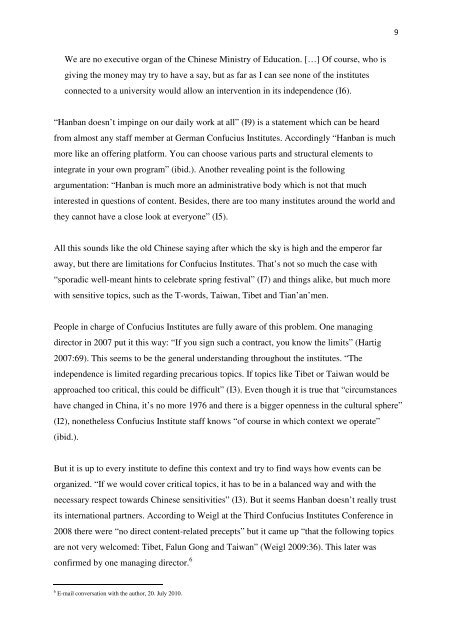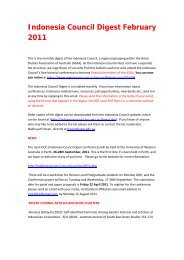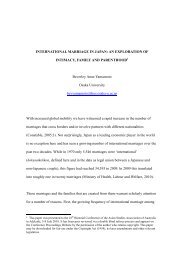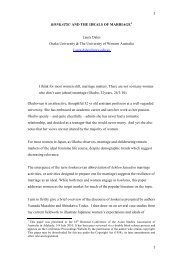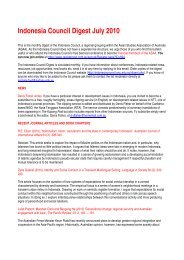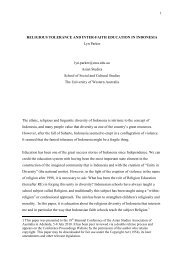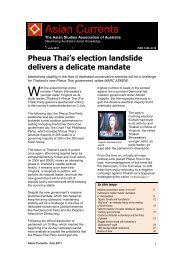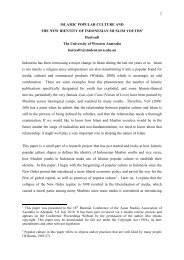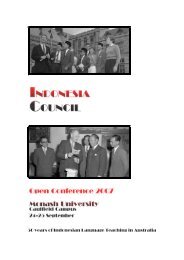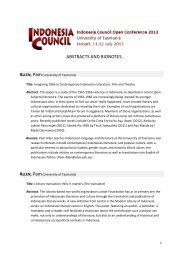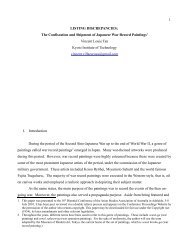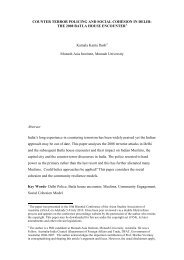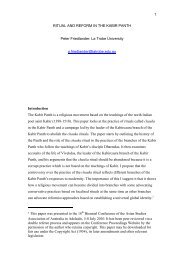CONFUSION ABOUT CONFUCIUS INSTITUTES Soft Power Push or ...
CONFUSION ABOUT CONFUCIUS INSTITUTES Soft Power Push or ...
CONFUSION ABOUT CONFUCIUS INSTITUTES Soft Power Push or ...
You also want an ePaper? Increase the reach of your titles
YUMPU automatically turns print PDFs into web optimized ePapers that Google loves.
We are no executive <strong>or</strong>gan of the Chinese Ministry of Education. […] Of course, who is<br />
giving the money may try to have a say, but as far as I can see none of the institutes<br />
connected to a university would allow an intervention in its independence (I6).<br />
“Hanban doesn’t impinge on our daily w<strong>or</strong>k at all” (I9) is a statement which can be heard<br />
from almost any staff member at German Confucius Institutes. Acc<strong>or</strong>dingly “Hanban is much<br />
m<strong>or</strong>e like an offering platf<strong>or</strong>m. You can choose various parts and structural elements to<br />
integrate in your own program” (ibid.). Another revealing point is the following<br />
argumentation: “Hanban is much m<strong>or</strong>e an administrative body which is not that much<br />
interested in questions of content. Besides, there are too many institutes around the w<strong>or</strong>ld and<br />
they cannot have a close look at everyone” (I5).<br />
All this sounds like the old Chinese saying after which the sky is high and the emper<strong>or</strong> far<br />
away, but there are limitations f<strong>or</strong> Confucius Institutes. That’s not so much the case with<br />
“sp<strong>or</strong>adic well-meant hints to celebrate spring festival” (I7) and things alike, but much m<strong>or</strong>e<br />
with sensitive topics, such as the T-w<strong>or</strong>ds, Taiwan, Tibet and Tian’an’men.<br />
People in charge of Confucius Institutes are fully aware of this problem. One managing<br />
direct<strong>or</strong> in 2007 put it this way: “If you sign such a contract, you know the limits” (Hartig<br />
2007:69). This seems to be the general understanding throughout the institutes. “The<br />
independence is limited regarding precarious topics. If topics like Tibet <strong>or</strong> Taiwan would be<br />
approached too critical, this could be difficult” (I3). Even though it is true that “circumstances<br />
have changed in China, it’s no m<strong>or</strong>e 1976 and there is a bigger openness in the cultural sphere”<br />
(I2), nonetheless Confucius Institute staff knows “of course in which context we operate”<br />
(ibid.).<br />
But it is up to every institute to define this context and try to find ways how events can be<br />
<strong>or</strong>ganized. “If we would cover critical topics, it has to be in a balanced way and with the<br />
necessary respect towards Chinese sensitivities” (I3). But it seems Hanban doesn’t really trust<br />
its international partners. Acc<strong>or</strong>ding to Weigl at the Third Confucius Institutes Conference in<br />
2008 there were “no direct content-related precepts” but it came up “that the following topics<br />
are not very welcomed: Tibet, Falun Gong and Taiwan” (Weigl 2009:36). This later was<br />
confirmed by one managing direct<strong>or</strong>. 6<br />
6 E-mail conversation with the auth<strong>or</strong>, 20. July 2010.<br />
9


